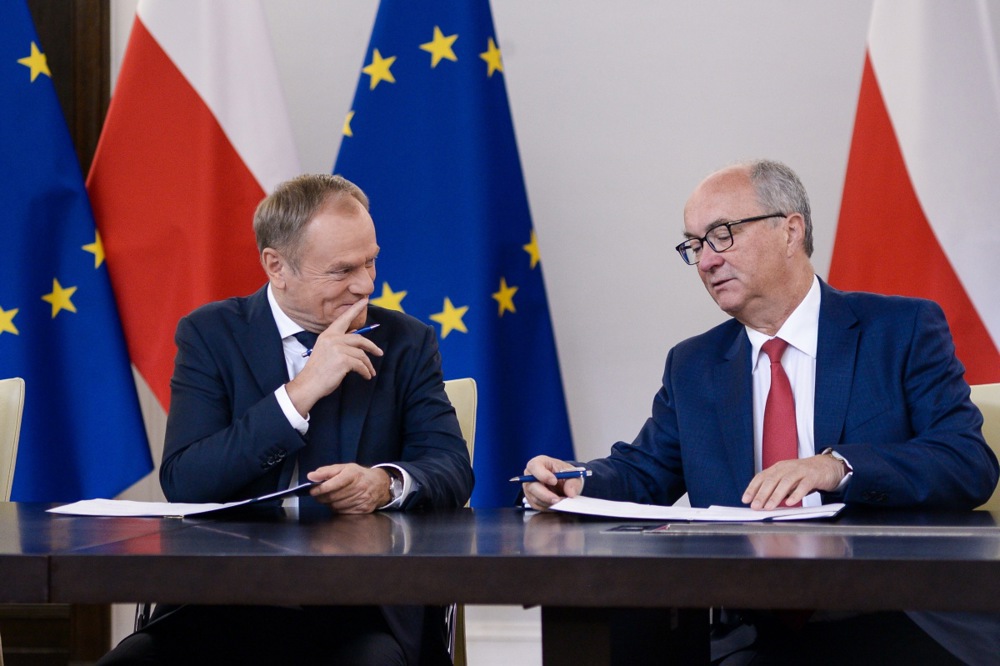Polish Prime Minister and leader of the Civic Coalition (KO) Donald Tusk has changed his mind about an electoral pact with The Left party for the European and local elections.
The Left is already struggling in the opinion polls ahead of the local elections on April 7 and the European Parliamentary elections on June 9, with one anonymous party member declaring that the move meant “Tusk has thrown us under a bus”.
That comes as Tusk’s bloc on January 30 announced it had registered for the local elections without The Left contingent.
According to Kamil Dziubka from news portal Onet.pl, Tusk has taken the decision to break off talks about joints lists with The Left party because private polls taken for his party indicate that his alliance is on the verge of overtaking the opposition Conservatives (PiS) as Poland’s most popular political force.
In addition, the same polling indicates that if the KO allies with The Left it would leave too much room in the centre for the Third Way alliance to make hay.
Third Way, an electoral coalition made of the centre-right Polish People Party (PSL) and the more Liberal Poland 2050 party, led by Parliament speaker Szymon Hołownia, has enjoyed poll ratings close to 20 per cent since its success in the parliamentary elections last October. Then it managed to poll 14.4 per cent of the vote.
According to a politician from The Left, who declined to be named, Tusk has told The Left’s leader Włodzimierz Czarzasty that he cannot persuade his party people to make the deal with it. Without his members’ consent, Tusk said he feared any such negotiations would fail.
Apparently, The Left party’s leadership is, in private, confused and irritated at the turn of events. One of party source said it was Tusk who had asked for talks on a potential electoral coalition in the first place and that then, just over a week later, he informed the press his group was “going it alone”.
Leaders of The Left fear that “confusing messages” have been sent to their electorate, which could potentially lead to an exodus of support and activists.
The party, itself a coalition made up of activists of the former post-communist Left Alliance and the more left-wing “Together” party, polled 8.6 per cent in October’s parliamentary election. Its poll ratings since have been in the 7-9 per cent range.
Tusk’s growing assertiveness and apparent self-confidence was on display again on January 30 when he said that if Polish President Andrzej Duda refused to approve the State budget, he would be willing to challenge the PiS to vote with the KO on dissolving Parliament and holding early elections.
Duda’s top aide Marcin Mastalerek dismissed Tusk’s move as a “bluff”, saying the President did not want to be involved in any dissolution of Parliament as there was a parliamentary majority and a stable coalition Government in place.
“If Donald Tusk wants to finish off his coalition partners and hold an early election then he can do that since Jarosław Kaczyński, the leader of PiS, has said that his party would support such a measure, but please keep the head of state out of such political games,” Mastalerek said.
Poland’s parliament can be dissolved by a vote of two-thirds of its members being in favour or if the legislature fails to pass a budget. In either case the president can take a decision on a dissolution.
Tusk has been buoyed by the fact that his party’s poll ratings are increasing despite controversial moves such as the take-over of public media, the take-over of the national prosecution service without the President’s consent and the incarceration of two PiS MPs, despite protests from the Head of State.
His associates are now signalling that the ruling majority at the next session of Parliament will vote in a resolution to change the membership of the Constitutional Tribunal, Poland’s constitutional court.





